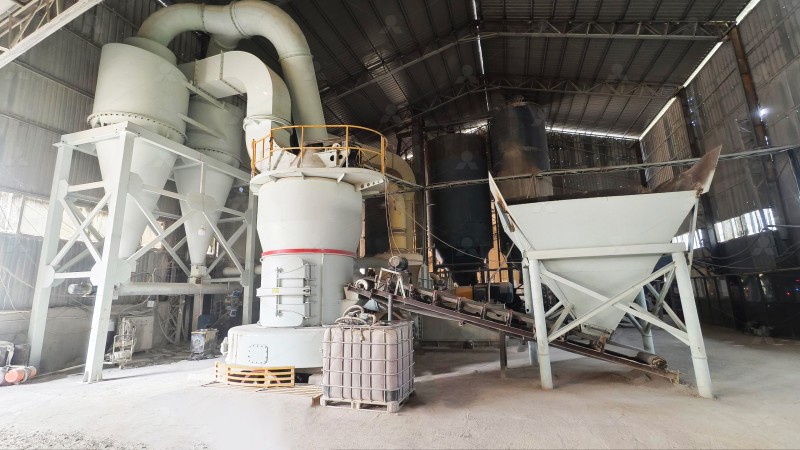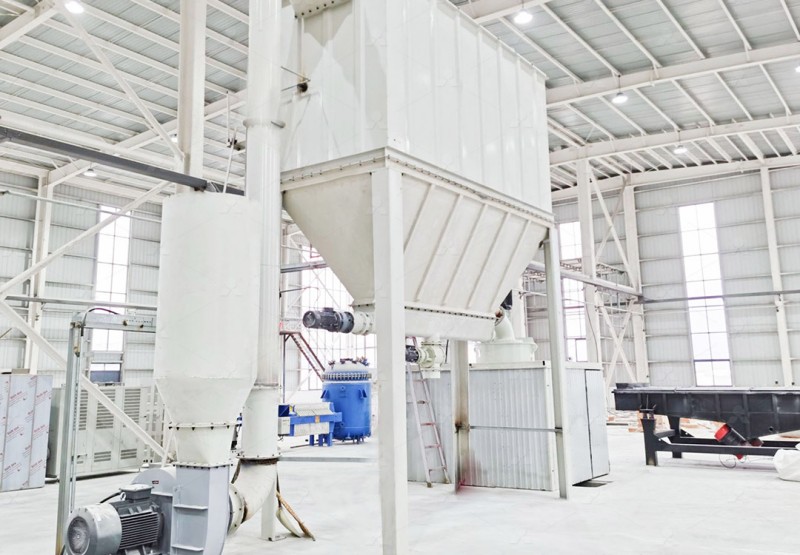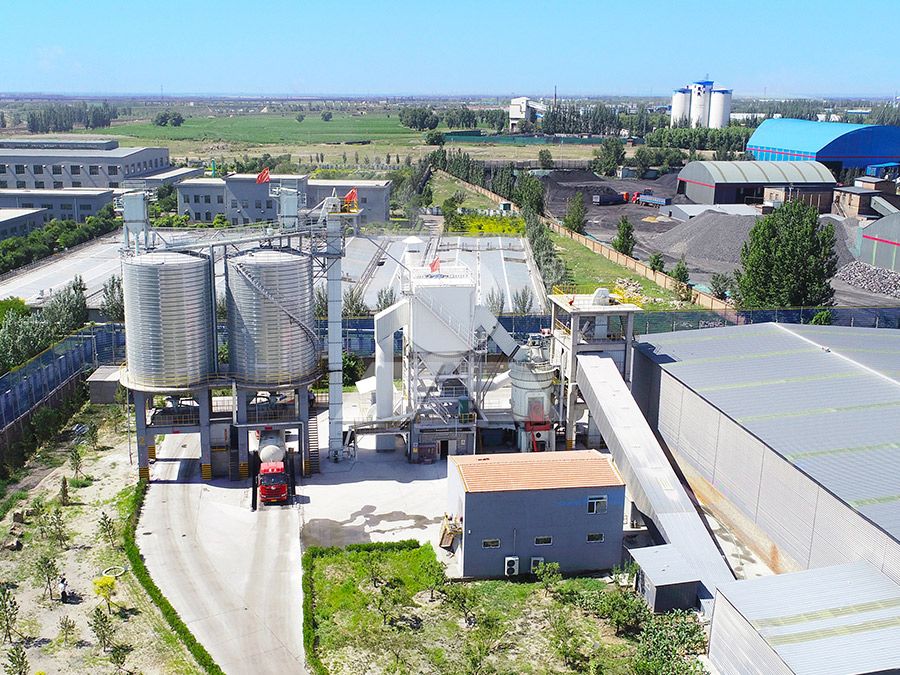Vertical Grinding Mill Solutions for Refractory Material Processing
Vertical Grinding Mill Solutions for Refractory Material Processing
Processing refractory materials presents unique challenges that demand specialized grinding solutions. These hard, abrasive substances require robust milling equipment capable of handling extreme conditions while maintaining consistent output quality and operational efficiency. The selection of appropriate grinding technology becomes paramount for operations dealing with materials like dolomite, barite, talc, and other industrial minerals.

Traditional grinding methods often fall short when dealing with refractory materials, leading to excessive wear, inconsistent particle distribution, and high energy consumption. Modern vertical grinding technology addresses these challenges through innovative engineering and specialized design features.
Technical Challenges in Refractory Material Processing
Refractory materials typically exhibit high hardness, abrasiveness, and sometimes thermal stability that makes them resistant to standard grinding processes. The wear on grinding components can be substantial, leading to frequent maintenance requirements and production downtime. Additionally, achieving the precise particle size distribution required for various industrial applications demands sophisticated separation technology.
Environmental considerations also play a crucial role in modern processing operations. Dust control, noise reduction, and energy efficiency have become non-negotiable requirements for sustainable operations. These factors must be balanced against production targets and product quality specifications.
Advanced Grinding Solutions
For operations requiring ultra-fine powder production from refractory materials, the MW Ultrafine Grinding Mill presents an optimal solution. This advanced system handles input sizes up to 20 mm with capacities ranging from 0.5 to 25 tph, making it suitable for various production scales. The mill’s innovative design eliminates rolling bearings and screws within the grinding chamber, significantly reducing maintenance concerns related to bearing damage or loose components.

The MW series incorporates German cage-type powder selector technology, allowing precise fineness adjustment between 325-2500 meshes with screening rates achieving d97≤5μm in a single pass. This precision is particularly valuable when processing refractory materials that require strict particle size control for downstream applications.
Operational Advantages for Refractory Applications
When processing challenging materials, the MW Ultrafine Grinding Mill demonstrates significant advantages over conventional systems. The equipment delivers 40% higher production capacity compared to jet grinding mills and double the output of ball grinding mills at equivalent fineness and power levels. Meanwhile, system energy consumption is reduced to just 30% of jet grinding mill requirements.
The external lubrication system enables continuous 24-hour operation without shutdowns for maintenance, while the integrated pulse dust collector ensures environmentally compliant operation. These features combine to provide a reliable, efficient solution for refractory material processing that maintains consistent performance even under demanding conditions.

Application-Specific Considerations
Different refractory materials present unique processing characteristics that influence equipment selection. Materials like barite and marble require different approaches to grinding curve optimization and separator configuration. The flexibility of modern vertical grinding systems allows for customization based on specific material properties and production requirements.
For operations processing multiple refractory materials, the ability to quickly adjust fineness and throughput parameters becomes particularly valuable. The digital control systems integrated into advanced grinding mills facilitate these adjustments while maintaining operational stability and product consistency.
Frequently Asked Questions
What makes vertical grinding mills particularly suitable for refractory materials?
Vertical grinding mills offer several advantages for refractory material processing, including superior wear resistance, precise particle size control, and higher energy efficiency compared to traditional grinding systems. Their vertical orientation and specialized grinding curves are specifically engineered to handle hard, abrasive materials effectively.
How does the MW Ultrafine Grinding Mill handle the abrasive nature of refractory materials?
The MW series incorporates several design features to combat abrasion, including the absence of rolling bearings in the grinding chamber, specialized wear-resistant materials in high-impact areas, and optimized grinding curves that distribute wear evenly across components. The external lubrication system further protects against premature failure due to abrasive particles.
What fineness levels can be achieved when processing refractory materials?
The MW Ultrafine Grinding Mill can produce powders ranging from 325 to 2500 meshes, with the capability to achieve d97≤5μm in a single pass. This range covers most industrial applications requiring finely ground refractory materials, from construction applications to specialized chemical processes.
How does the energy consumption compare to traditional grinding systems?
Advanced vertical grinding systems typically consume 30-50% less energy than conventional ball mills or jet mills when processing equivalent quantities of refractory materials. This efficiency stems from optimized grinding mechanics, improved separation technology, and reduced internal friction.
What maintenance considerations are specific to refractory material processing?
Refractory materials accelerate wear on grinding components, making easy maintenance access and quick component replacement essential. The MW series addresses this through its reversible structure and external maintenance points, reducing downtime from hours to minutes for routine wear part replacement.
